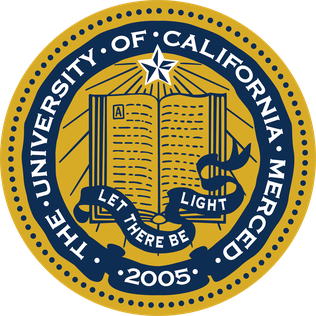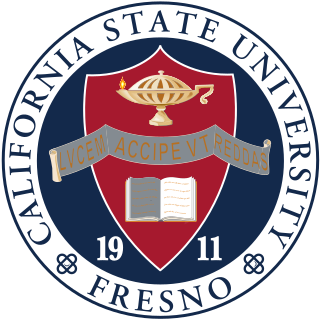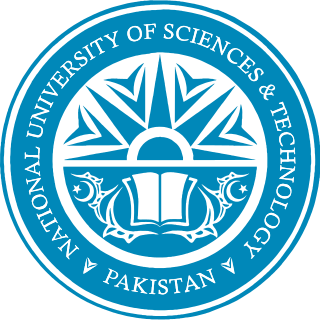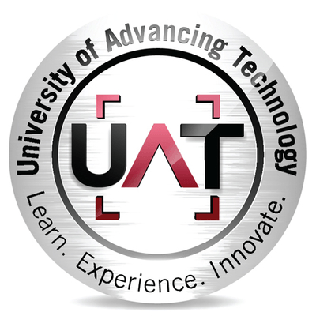Related Research Articles
College and university rankings order institutions in higher education based on factors that vary depending on the ranking. Some rankings evaluate institutions within a single country, while others assess institutions worldwide. Rankings are typically conducted by magazines, newspapers, websites, governments, or academics. In addition to ranking entire institutions, specific programs, departments, and schools can be ranked. Some rankings consider measures of wealth, excellence in research, selective admissions, and alumni success. Rankings may also consider various combinations of measures of specialization expertise, student options, award numbers, internationalization, graduate employment, industrial linkage, historical reputation and other criteria.

The University of California, Merced is a public land-grant research university and Hispanic-serving institution located in Merced, California, and is the tenth and newest of the University of California (UC) campuses. Established in 2005, UC Merced was founded to "address chronically low levels of educational attainment in the region." UC Merced enrolls 8,321 undergraduates and 772 graduates with 63.8% of students receiving Pell Grants, more than 99% of UC Merced students coming from California, and the largest percentage of low-income students from underrepresented ethnic groups in the UC system.

California State University, Fresno is a public university in Fresno, California, United States. It is part of the California State University system. The university had a fall 2020 enrollment of 25,341 students. It offers 60 bachelor's degree program, 45 master's degree programs, 3 doctoral degree programs, 12 certificates of advanced study, and 2 different teaching credentials. The university is classified among "R2: Doctoral Universities – High research activity". Fresno is an Hispanic-serving institution (HSI) and is eligible to be designated as an Asian American Native American Pacific Islander serving institution (AANAPISI).

The National University of Sciences & Technology (NUST) is a multi-campus public research university with its main campus in Islamabad, Pakistan.
Student financial aid in the United States is funding that is available exclusively to students attending a post-secondary educational institution in the United States. This funding is used to assist in covering the many costs incurred in the pursuit of post-secondary education. Financial aid is available from federal and state governments, educational institutions, and private organizations. It can be awarded in the form of grants, loans, work-study, and scholarships. In order to apply for federal financial aid, students must first complete the Free Application for Federal Student Aid (FAFSA).

University of Advancing Technology (UAT) is a private for-profit university in Tempe, Arizona. Founded in 1983, UAT integrates technology into its general education requirements. The institution offers core classes, as well as deep sets of courses in each major. Each student is required to complete a "Student Innovation Project" and internship to graduate.

In college athletics in the United States, recruiting is the process in which college coaches add prospective student athletes to their roster each off-season. This process typically culminates in a coach extending an athletic scholarship offer to a player who is about to be a junior in high school or higher. There are instances, mostly at lower division universities, where no athletic scholarship can be awarded and where the player pays for tuition, housing, and textbook costs out of pocket or from financial aid. During this recruiting process, schools must comply with rules that define who may be involved in the recruiting process, when recruiting may occur and the conditions under which recruiting may be conducted. Recruiting rules seek, as much as possible, to control intrusions into the lives of prospective student-athletes. The NCAA defines recruiting as “any solicitation of prospective student-athletes or their parents by an institutional staff member or by a representative of the institution’s athletics interests for the purpose of securing a prospective student-athlete’s enrollment and ultimate participation in the institution’s intercollegiate athletics program."
The National Association of Independent Colleges and Universities (NAICU) is a nonprofit 501(c)(3) located in Washington D.C. It is an organization of private American colleges and universities. Founded in 1976, it has over 1,000 independent higher education institutions.
The Annapolis Group is an American organization of independent liberal arts colleges. It represents approximately 130 liberal arts colleges in the United States. These colleges work together to promote a greater understanding of the goals of a liberal arts education through their websites, as well as through independent research. Its current chair is Stephen D. Schutt, the president of Lake Forest College.

Criticism of college and university rankings refers to movements which developed among faculty and administrators in institutions of higher education in the United States as well as in Canada. The arguments of those who criticize the U.S. News & World Report Best College Ranking are that it is not possible to come with a single number that characterizes university performance. Furthermore, ratings can be easily manipulated and include such subjective characteristics as the "reputation" determined by surveying university administrators such as chancellors or deans. Critics say rankings have incentivized institutions to encourage more unqualified students to apply and are a better measure of the abilities students had when they arrived than what they learned from higher education.

Liberal arts colleges in the United States are undergraduate institutions of higher education in the United States that focus on a liberal arts education. The Encyclopædia Britannica Concise defines liberal arts as a "college or university curriculum aimed at imparting general knowledge and developing general intellectual capacities, in contrast to a professional, vocational, or technical curriculum". Generally, a full-time, four-year course of study at a liberal arts college leads students to earning the Bachelor of Arts or the Bachelor of Science.
Katherine Haley is an American academic administrator who served as the 13th president of Gettysburg College in Gettysburg, Pennsylvania from 2004 until 2008. She also served as chair of the Annapolis Group, the presidents’ organization of the nation's leading liberal arts colleges.
Provision of education in the UAE began shortly after the establishment of the federation with the inception of the first university in Al Ain, Abu Dhabi, the United Arab Emirates University. Since then, the country has progressed with efforts of ensuring high literacy rates, modern programs and women's share in education. It works on improving its youths education which is why the agenda 2021 has been set. The UAE currently devotes approximately 25 percent of total federal government spending to education. As of 2019, the overall literacy rate is 96%.
The Voluntary System of Accountability (VSA) and its College Portraits website is a college search tool for prospective students and an accountability tool for public institutions.
In the United States, community colleges are primarily two-year public institutions of tertiary education. Community colleges offer undergraduate education in the form of an associate degree. In addition community colleges also offer remedial education, GEDs, high school diplomas, technical diplomas and academic certificates, and in rare cases, a limited number of 4-year bachelor's degrees. After graduating from a community college, some students transfer to a four-year college or university to continue their studies leading to a bachelor's degree. Community college is tuition-free for selected students in 47 states, often under the name College Promise. Most community college instructors have advanced degrees but serve as part-time low wage employees.
The higher education in the Philippines is offered through various degree programs by a wide selection of colleges and universities—also known as higher education institutions (HEIs). These are administered and regulated by the Commission on Higher Education (CHED).
College and university rankings in the United States order the best U.S. colleges and universities based on factors that vary depending on the ranking. Rankings are typically conducted by magazines, newspapers, websites, governments, or academics. In addition to ranking entire institutions, specific programs, departments, and schools can be ranked. Some rankings consider measures of wealth, excellence in research, selective admissions, and alumni success. There is also much debate about rankings' interpretation, accuracy, and usefulness.
The Medical School Admission Requirements Guide (MSAR) is a suite of guides produced by the Association of American Medical Colleges (AAMC), which helps inform prospective medical students about medical school, the application process, and the undergraduate preparation. The MSAR staff works in collaboration with the admissions offices at each medical school and combined B.S./M.D. program to compile information about each school and program. This data originates from a number of sources including the:

The University of Public Service is a higher educational institution in Budapest, Hungary. Established in 2012, it is one of the youngest universities in Central and Eastern Europe; however, its faculties as former independent colleges look back much earlier.
Higher education in the United States is an optional stage of formal learning following secondary education. Higher education, also referred to as post-secondary education, third-stage, third-level, or tertiary education occurs most commonly at one of the 4,360 Title IV degree-granting institutions in the country. These may be public universities, private universities, liberal arts colleges, community colleges, or for-profit colleges. Learning environments vary greatly depending on not only the type of institution, but also the different goals implemented by the relevant county and state.